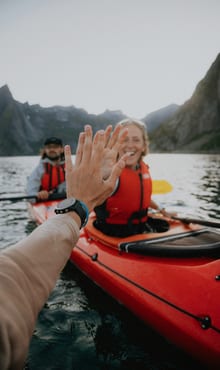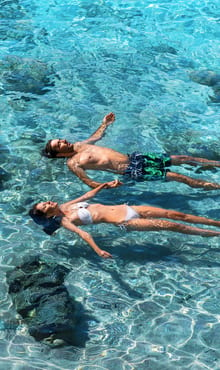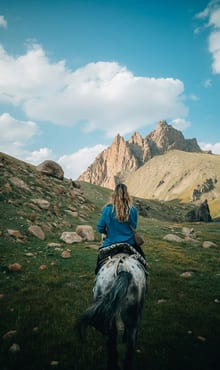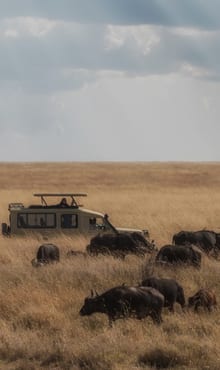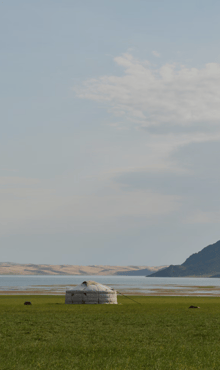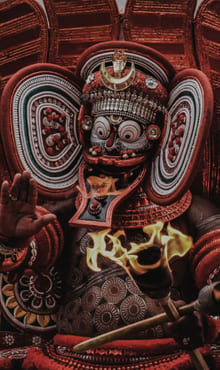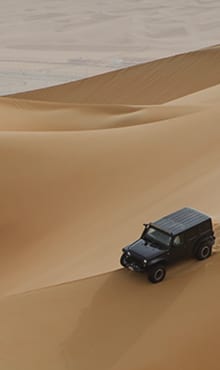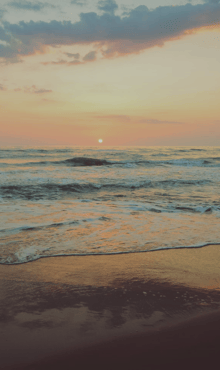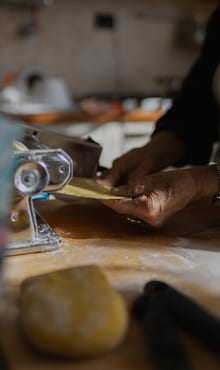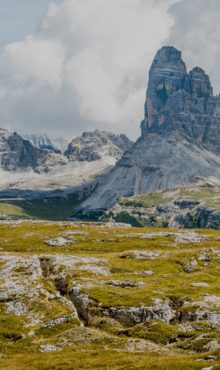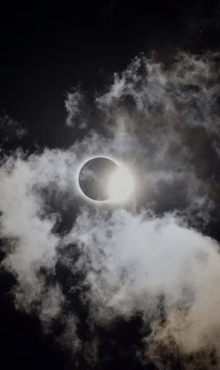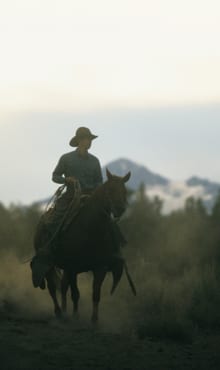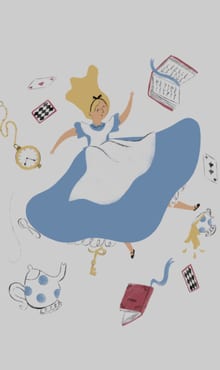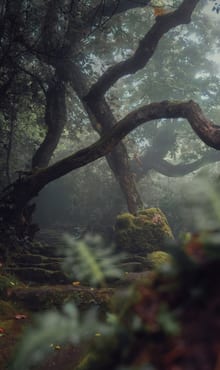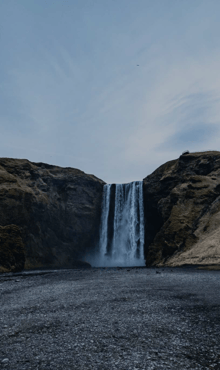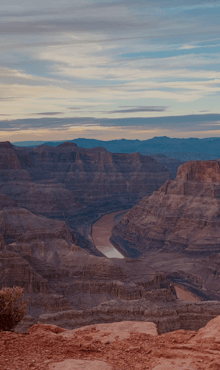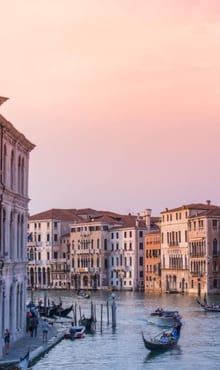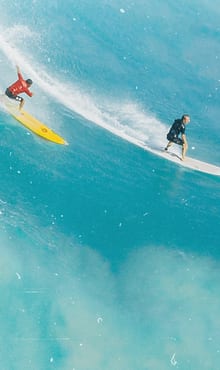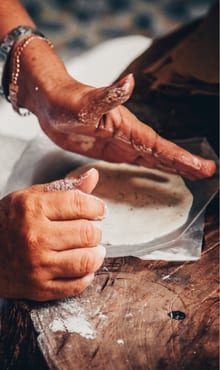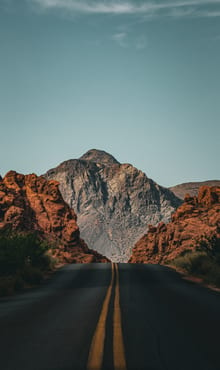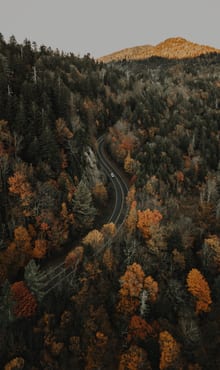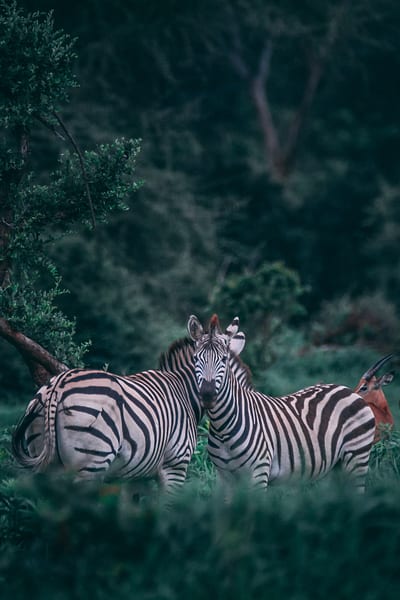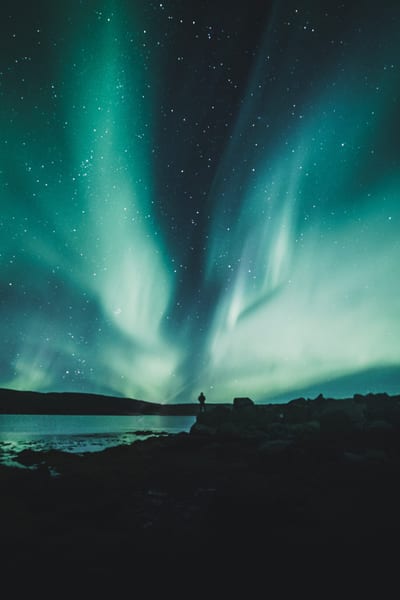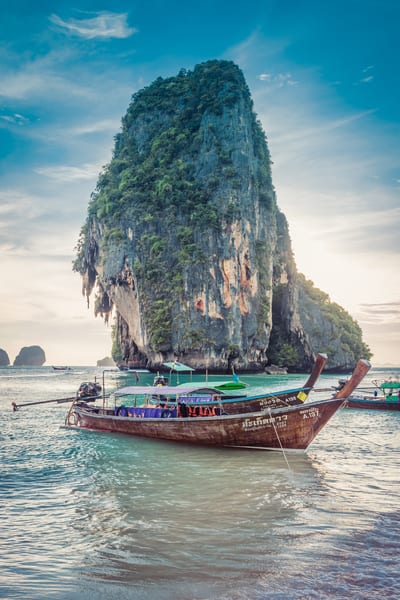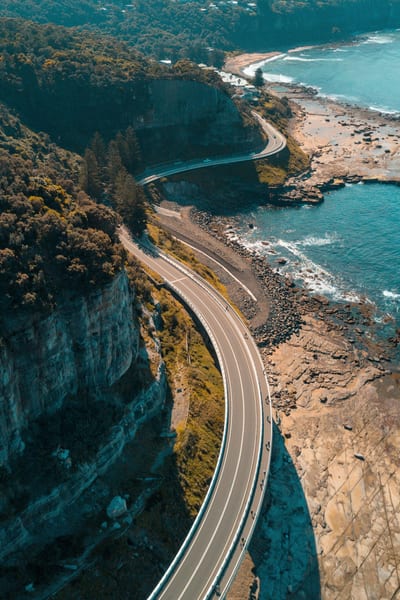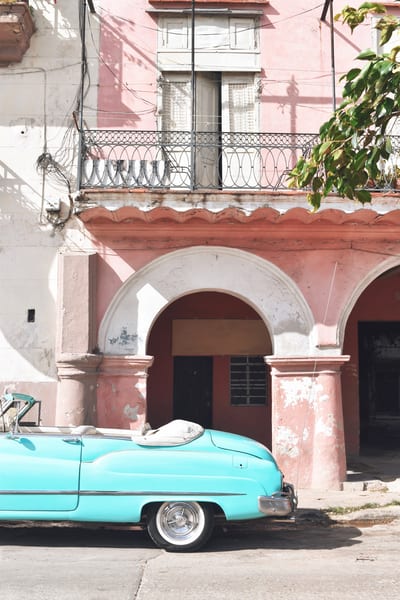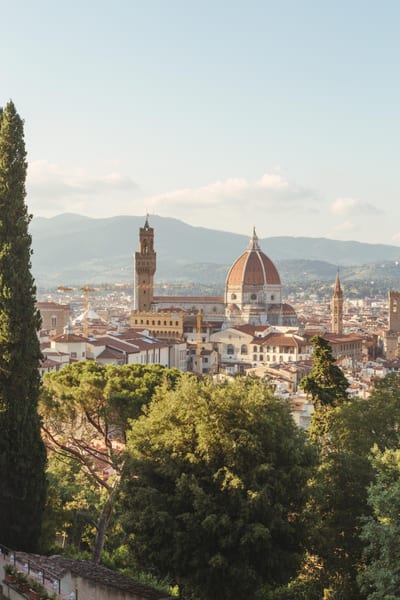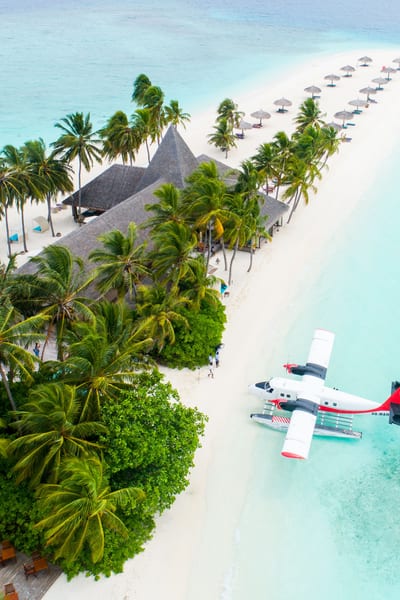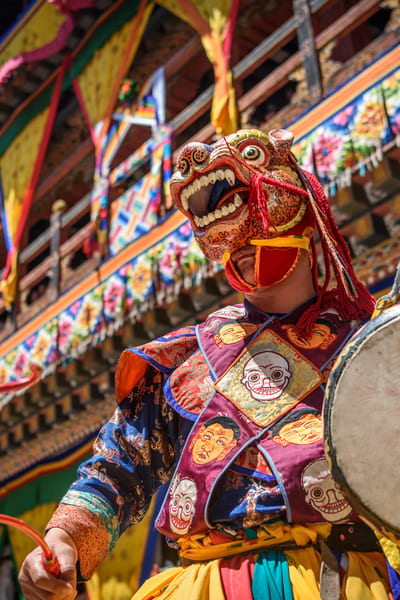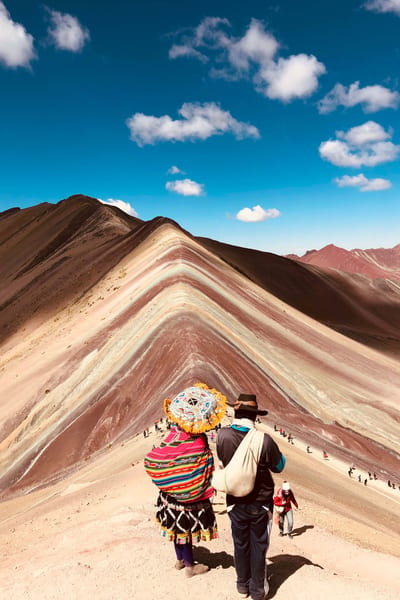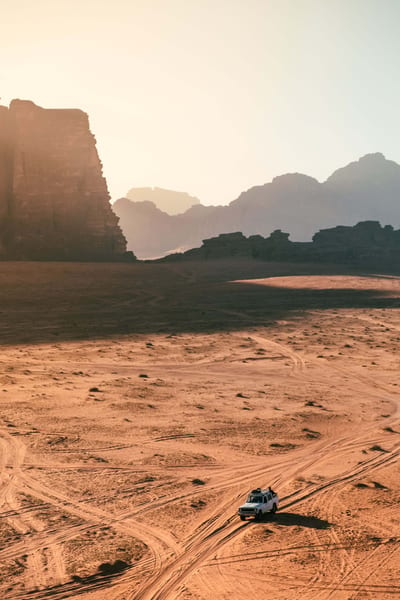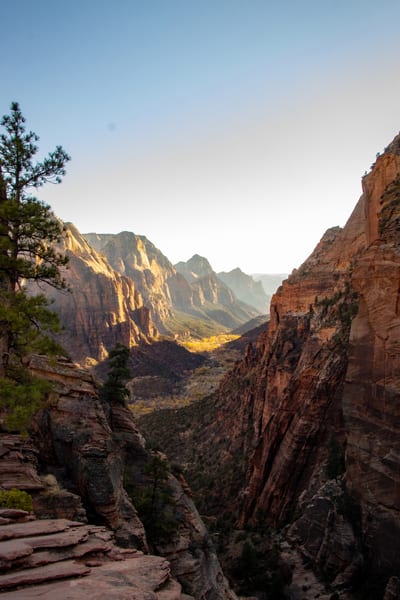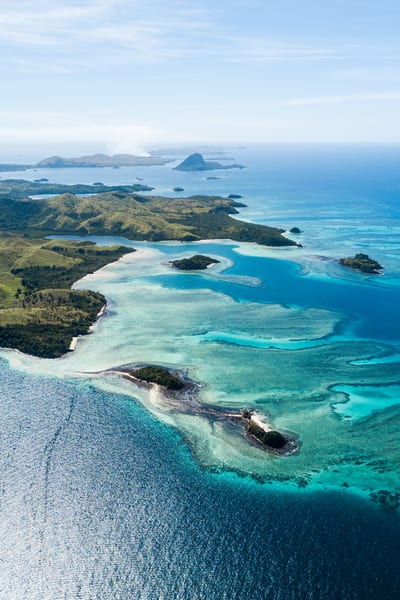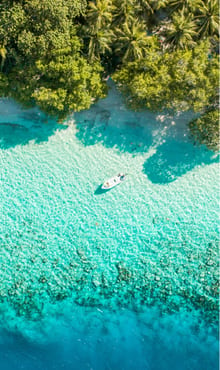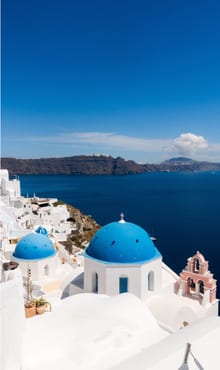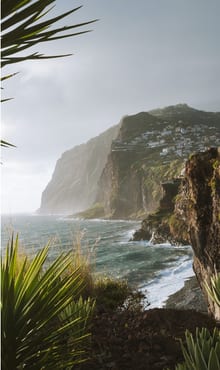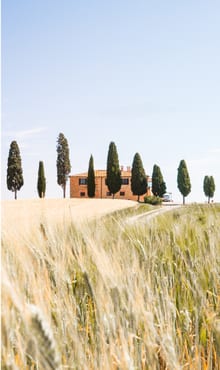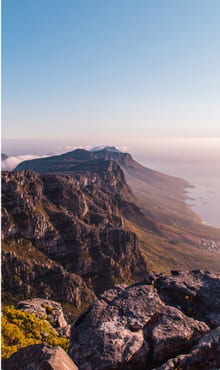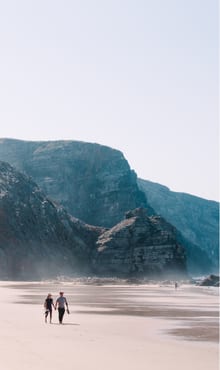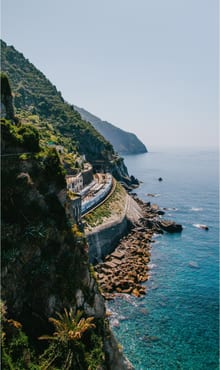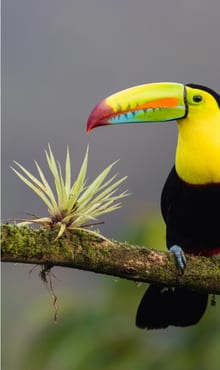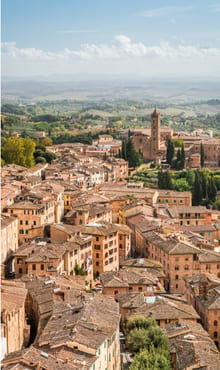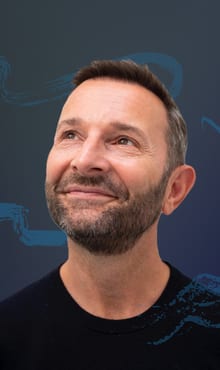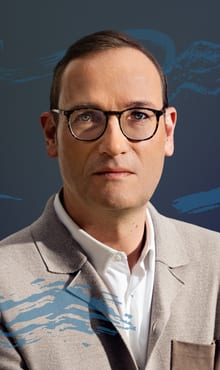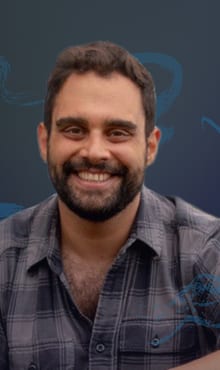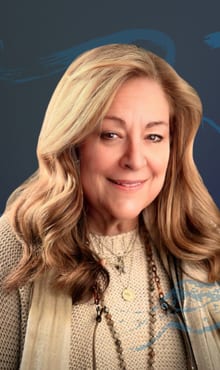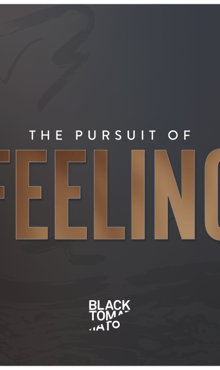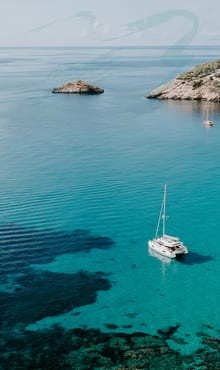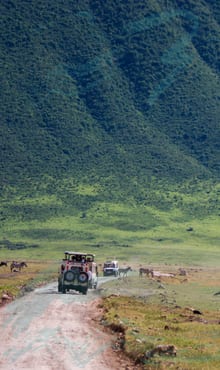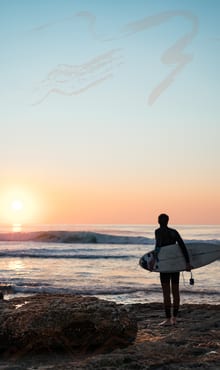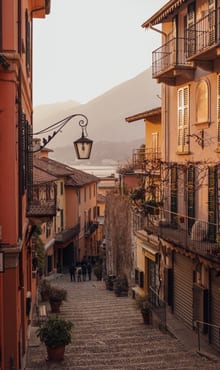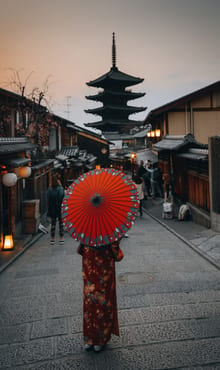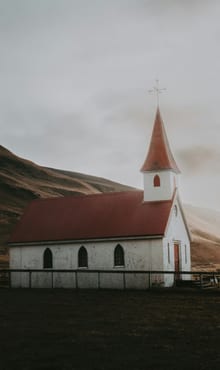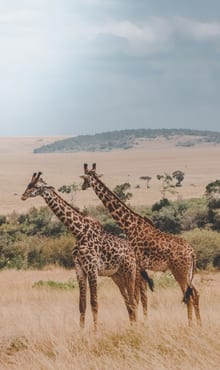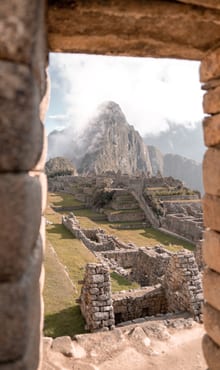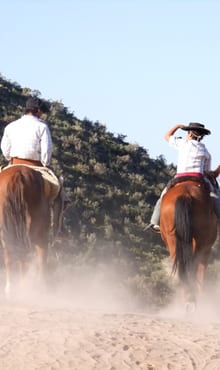Transcript
Owen Vince: 0:01
You’re listening to the Pursuit of Feeling, a podcast by Black Tomato. In this new series, we want to explore not only the world of travel, but the world of emotion and what it ultimately means to feel our way through the world. In each episode, you’ll also get a Rolodex of recommendations from our guests on where to go, what to do and where to stay all around the world.
Tom Marchant: 0:26
A few DJs have mapped emotion onto a dance floor quite like Paul Harris. As a founding member of the Grammy Award-winning Dirty Vegas, paul helped define a moment in global dance culture, crafting tracks that didn’t just make people move but made them feel. But behind the beats is a lifelong pursuit of something deeper, a storyteller through sound. Paul has produced and collaborated with global icons like Calvin Harris, madonna, kylie Minogue and Justin Timberlake, always bringing a touch shaped as much by experience as by instinct. In this episode, paul opens up about the role travel plays in his creative process, how the pulse of New York, the beats of Brazil and the heat of Ibiza influence his sound. He talks about the cities, restaurants and nightclubs that have left an emotional mark and the memories that resurface every time he returns, from hidden spots in Italy to late nights in London. It’s a journey through music, place and the feelings that linger long after the last track fades. Welcome to another episode of the Pursuit of Feeling podcast. Today I am delighted to be joined by the Grammy-winning DJ producer and co-founder of the Pursuit of Feeling podcast. Today I am delighted to be joined by the Grammy-winning DJ producer and co-founder of the iconic Dirty Vegas electronic music group.
Tom Marchant: 1:31
Paul Harris is someone who has shaped the dance music scene for the last 20 years and has become a pioneer of so many great musical movements. I’m honored to have him on the podcast today. In his industry he travels. Of all the people I know, he probably travels the most, and it’s always so fantastic to catch up with him and hear stories from the road and the inspiration he gets. Pursuit of Feeling is all about exploring the connection between travel and the emotions it brings, and I think the combination of travel and music is a very powerful one. So, paul, thank you very much for coming on to the podcast today. Thank you. Before we sort of get into the, the meat of kind of this, this relationship of travel and emotion, your thoughts just give us a little kind of quick overview of you and what’s your relationship with travel like. Where did it sort of start and become something that means much?
Paul Harris: 2:15
to you? Yes, well, initially just from dj. And it’s like when I first started in the early 90s, my travelling got as far as up and down em1 once. Once the band sort of took off like when it was the early noughties and everything was like the world, it had become worldwide. Everything was so you’d get booked all over the place, so I’d be in Brazil one weekend or Italy or Rome, and then the world opened up. And yeah, that’s when the whole music, travel and things sort of come together.
Tom Marchant: 2:43
So when you suddenly started getting to see the world, was that quite a rapid kind of from, like you say, up and down the air one to suddenly right we’re hitting all these global spots, and was that quite overwhelming? Or was it kind of a gradual introduction to these places?
Paul Harris: 2:57
yeah, I guess from the start like um from dj in the uk circuit yeah and then from doing that, from making records sort of met I’ll give the story like met Ben and Steve in the band and then we sort of had the record which was Days Go by, which blew up in the very early 2000s. The record kind of like was an underground hit in the UK and then it become a part of an advert in America which obviously becomes like lots of people know about that and then the record sort of it’s now become like it’s quite fundamental in the birthplace of EDM in America because it’s where lots of early DJs sort of heard of Dirty Vegas or the music of Dirty Vegas and that’s one of the first times they heard house music because they didn’t really know what it was all these kids who was on TV and from that the band sort of took off and then we got offered gigs in the states in america quite a lot.
Tom Marchant: 3:46
The early 2000s was lots of travelling to america and when, with something like days, go by, when you, when you made that, you obviously would have known it’s a great song, but the how it was adopted and how it exploded could you ever foresee something like that coming that quickly? I mean obviously backing your talent, but it was a big moment right.
Paul Harris: 4:04
It was like lightning in a bottle. It’s like things like this. You’re just really lucky it happened. We made the record. We thought it’d be a big record for the djs like sasha digweed and people like that. All our peers were playing this record. We’re lucky because pete tong got hold of the record in champion and played it for I think like 10 to 12 weeks on the spin. The record did something. We got signed to Parlophone and then, like a big sort of deal happened. We signed the record and obviously we did a video and the video is one of the reasons why the record sort of blew up, because we did the video and the video was just a super amazing video by a company called Blue Sauce, so that was out in the ethos.
Paul Harris: 4:46
And someone from Deutsche, which is like an ad agency in la one night, was in amsterdam. So the story has and he watched their video on mtv or something when mtv was still a thing. He went back and he had to do this advert for mitsubishi and he went. I’ve seen this video. This guy breakdance into this music and I think this is the perfect music for this advert and then obviously the advert sort of come out and it become like a cult thing. Like you had Jimmy Fallon, david LaChapelle and people like doing parodies of the commercial on tv, so in America just this advert just blew up and blew up and blew up sort of that year. Obviously we were the Grammys, we were the MTV awards, we were like everything and it’s come from from a record which we thought would sell 500 copies out the back of a cart. We had no expectations or know anything about the record. You can’t make something like that happen and it’s.
Tom Marchant: 5:31
I think there’s it’s like a confluence of reasons, but ultimately it’s still like it’s the old adage that you know the good will outright, so something that’s good and and you do get those breaks, but what a journey. I think on the back of that you’re going over to america. Were there kind of early gigs there? Or maybe, like some of the uk, that left a massive imprint? Were there certain things where you like that stick in your head is like I’m in this place, this is, this is something sensational, and you still go back to it, like the things that take you back to that time for me it’s like the very early memories.
Paul Harris: 6:01
I think the first club I probably went to was maybe 15 or 16, getting stuck like snuck in with my brother and walking in seeing this and going my god, what, what am I in? What is this utopia? It’s like me never seen before. And then at the time I well, when I started working, I was working in the city when I was pretty young and then in the city and trying to dj at the same time and then obviously one thing had to give in and that was that was the city life. I know it’s like I was pretty spoiled Cause I think I guess kids now think this time, now is the best time, and I’ve sort of seen all of the journeys and generations of clubbing and the nineties, the two thousands of 2000,.
Paul Harris: 6:39
Everything has its thing. I guess the early start of it was the 90s and I still think that holds memories and like the music does think to me and sometimes when you’re going to a city you’ll have memories of stuff and then you go over New York Bridge and you’ll just remember something. You’ll hear a red blade and it gives you like music is definitely um, it makes you remember things for sure on that basis.
Tom Marchant: 7:02
So I say with like certain cities, are there certain whether it’s tracks or styles of music that you connect with certain cities? I don’t know whether particular scenes that you identify with certain cities or they’re just. I have this thing where I go to cities and there’s it might be particular types of food or bars or places that are distinctively that you know the experience might have in tokyo is very different than york do. When you look at cities kind of connect to the music there A hundred percent.
Paul Harris: 7:26
A hundred percent. Lots of places has its different sounds. I think the UK we’re quite eclectic. We have drum and bass, we have techno, we have everything here. Out of all the countries in the world, we probably have the biggest cross-section in music. But then you’ll go to Miami, which I was the other week, and it’s on the beach, it’s very what the Americans call EDM. It’s very guys spending loads of money and throwing money at stuff and champagne and sparklers and the music is quite high energy. And then you’ll go downtown and it’s Tecmo and all the cool kids and, like most cities in the world have the same thing, like New York will have the same thing. It’ll be like the city would be quite high end and quite stuff like that, as you know, and then would be cool. But then, yeah, the music would be in australia. At one point it was quite electro and germany’s always been quite techno-y and quite underground. Italy has the same sort of thing as america.
Tom Marchant: 8:19
There’s the super cool kids and like the underground kids that happens in like most obviously most cities in the world has that would you see when you’re in those, those cities, say, when you’ve got this, the underground, the emerging, the cooler kids scene, would you see people like, say, from the the high end, like sort of trying to get into that scene because they would think that in some way association with or that’s it’s often like for all the money someone might have, you want to be where the people are so effortlessly cool and would you see, maybe across dance floors or stuff or in certain places, people trying to move into that and it working or or it not working well, or now the underground is the overground, so I guess it has kind of happened.
Paul Harris: 8:57
It’s like everybody wants to see bedouin and years ago everyone wanted to see calvin, and it’s like there is sort of definitely a space for everyone and everything I know. It’s interesting at the moment because it’s probably never been so big. The industry is beyond big and I’ve just literally I went to miami music week and every club is packed and it’s like it seems to be quite american heavy, to be honest. But um, it used to be very more like all europeans would go, but now you have things like ade and obviously I just there’s been ims in ibiza, but the miami music week was very more american heavy and where do you see?
Tom Marchant: 9:34
when you’re kind of producing or composing, do you take inspiration from your travels or do you like particular places that might shape or in terms of, in terms of your, your, when you your structuring and composition or your producing, does the role of travel or things you’ve seen on your journeys or inspirational insights you get from something new, does that ever play a role in it? I guess in my mind.
Paul Harris: 9:54
I know what will work in different countries. You know what a German record will sound like compared to an American record or Italian record. You just know what sounds to have in it. So that would happen. And also I’m lucky enough to travel a lot with making music. I’ve just been in Ibiza with a band I work with, Arco. We just rented a house for a week making some new music for them and obviously you’re surrounded in Ibiza and you make different music because you’re there and a couple of weeks ago I was in LA making records and because you’re in America and LA you’re trying to chase bigger records, which is a bit bizarre because everyone wants everything to be massive and you’re making more poppier sort of sounding records and we’re trying to. They like us because we’re the English and we come and we’re still quite cool, like the Americans. See, dance records are still being quite pop and we definitely make it a little bit cooler to them. But go, no, just it doesn’t have to have so much stuff going on that’s really interesting.
Tom Marchant: 10:53
So, like there’s, there’s these. So there’s one thing where you are, when you’re in place as well, one thing where you’re, you’re maybe producing records, when you’re thinking about particular territory that might stuff they might like, but then also you’re saying that you recognize that the influence of the environment you’re in, like you see that, and actually there’s a noticeable difference between, like, when you’re, say, writing or producing in Ibiza, there’s, it feels different to being in LA, which obviously, yeah, geographically that’s funny.
Paul Harris: 11:18
But actually to say that there, well, to recognize, there is a well, there’s a recognizable thing happening there for sure, like um, no, I was in Ibiza, in like there’s lots of writing camps happening around the world, but the one in Ibiza there was people from America there, people from Canada, like all over the world. But they’re making different records to what they would make at home because of the environment, because of the people they’re with, and it’s like I guess, if they’re at home, you’re just surrounded by what’s around you, aren’t you? The music on the radio, what you hear and what you feel, and it’s like everyone’s sort of making similar sounding records. But as soon as you get yourself out of that and go somewhere else, you hear different sounds.
Tom Marchant: 11:57
And that’s one of the things I talk about. We talk about one of the joys of what travelling. Travelling means, right, you know, because it’s by travelling you open yourself up to different stimulation, different cultures and just just by the purismosis of it, sometimes you don’t even, it’s even almost like a subconscious thing. But if you’re, if you’re constantly within one space or one bubble, it’s inevitable that you’re gonna, it’s gonna be hard to get much other kind of inspiration or challenging thought outside of it. The power that travel has, or the power that it has to make you say, right, I’m, I’m going to be curious, I’m going to go somewhere, open my mind and let stuff wash over me and see how that inspires me, I think just reinforces why so many people get inspired by travel and recognize what it does yeah, because you’re like when world music become like a huge thing, it’s like people would travel somewhere and you’d hear a pattern flute in Chile and next thing you know someone will put their own dance record or you’d hear something being played in like an unusual.
Paul Harris: 12:55
Obviously the king of it was someone like Damon Uban Gorillas, who travels the world with his DAP machine or his little iPad and just records, Cause I got a studio at his space and they were like in India just recording random things around the world, just to record stuff and just to come back with it. It’s obviously everywhere has its own unique sounds, which that is part of their culture. It’s not just part of the music, it’s part of the history and the culture of these places.
Tom Marchant: 13:22
Yeah, we often talk about. You travel often as a manifestation of your other passions. You might not necessarily realize it, but say, if you’re, like I don’t know, reading a book that’s set it’s not a guide, but it’s set in a particular place so there’s this literature coming in, or you’re listening to stuff that has notes from a different country or an exoticism for content it just starts planting things in your head which is I’m sort of there’s parts of the world that are being introduced to me through my other kind of passion points and slowly that starts seeping into kind of your need to go and explore it further.
Tom Marchant: 13:52
Music is such a powerful motivator. I mean I’m speaking to the expert on it, but I I remember like when I was younger I’d read about certain bands recording albums in certain places. You know and you want to go and be there, yeah, yeah, and you just be like you know because it, you know it might be like a massively like rugged, windswept place and it feels all ethereal and like that’s interesting. Then there might be someone who’s citing like the influence of the frenetic energy of a city that’s informing them, and and then you see it kind of coming to the music and you think, well, this is inspiring, like if you read how, like kerouac whites about music and on the road, the way he captures sounds of cities, it just pulls you in and it’s almost like music acts as this vehicle to pull you into places I was obsessed by house music so I knew I had to go to new york.
Paul Harris: 14:35
Same thing. It’s like I wanted to go to these shops or see these things, or be to go to these clubs and hear this music at this place. And it’s the same. Obviously, you and every single one of our friends, everyone does the pilgrimage to Ibiza because you have to go there and if you hear the right piece of music in the right place, at the right time and the right thing, it’s just like there’s nothing like it when every star’s collided.
Tom Marchant: 14:58
And so with that, say, like that New York thing, when you knew you had to go to New york into house, like what was that first visit, that first experience of seeing house in your life for you, if you take yourself back to that, what feelings that evoking you? Was it like I’ve come home? Was it like, yeah, this is different. Tell me about that.
Paul Harris: 15:16
I just thought it was the most insane place I’ve ever been to in my life. At the time I don’t, I can’t remember what year, like 94 maybe obviously heard about everything and read about everything and then coming over the bridge, coming into the city and seeing the skyline, you know, oh, my god, I’m here and yeah it’s like. And then I went because it’s obviously music was my thing by then and it’s like hunting around all the record shops I’ve heard about and just going walking down the streets and seeing everything. It was amazing. It’s like. So stuff you’ve read about and seen on tv and then you go and experience it and it not only met, but exceeded expectations right yeah, I still.
Paul Harris: 15:56
I haven’t actually been for a minute, I think the last time I was in new york I saw you. So, um, I need to go back for sure. My, my memory and my feelings are still.
Tom Marchant: 16:08
It’s probably like the best city in the world to visit yeah, yeah, I, I, you know, as you know, I was lucky to live there for a period and still travel there a lot with our you know, with our officers over there, but it just has a. You know, some people have said New York’s changed since COVID and stuff, but I think it’s been reborn in different ways and it just has an energy that I think is incomparable to anywhere else. If you haven’t spent time in there, it’s for me, it’s like it’d be a huge gap in that kind of travel tapestry you need to fill in. It is. I don’t think you can ever fail to be inspired or challenged about how you think about things after spending time in New York On the Dirty Vegas journey. Are there any kind of maybe it’s Ibiza, or maybe it was LA like any kind of destinations that had real significance for you?
Paul Harris: 16:57
You know, like you know, when you look at your incredibly successful and influential journey like you know, when you look look at your, you know incredibly successful and influential journey. I think it might have been like a hiatus of the band, so I sort of went off and I just went off and dj’d around the world again because I really needed to do it, and I found myself in south america quite a bit. I was in brazil quite a lot over the space of a couple of years and it’s a place I’d never dreamt I’d or thought I’d ever get to. And then I’m there once a month for a year or something ridiculous like that, um, and I fell in love with the place and the people and the culture and everything, and that was something that, yeah, it was amazing for like a couple of years were there particular parts, or was it just the blend, the mix of people, because you know you talk about people parts?
Tom Marchant: 17:42
or was it just the blend, the mix of people, Because you know you talk about people making places? Or is it just everything rolled into one that just felt so different?
Paul Harris: 17:46
Yeah, it’s like because obviously it has so many sort of things, you go up north and then you can, it’s been snowing and then it can be at a beach. It’s like, yeah, I just had a great feeling about it. And again, it’s because there’s a mix of portuguese, german, italian. It’s like a it’s. It’s very sort of it feels quite european, even though it’s american it’s truly a blend, isn’t it?
Tom Marchant: 18:15
and you wouldn’t say that with that brazil example, did you pick brazil because your interest or opportunities, and whether certain things you were seeking out through, you know, using music as your vehicle to see the world, whether things like right, I need to go and spend time in this country because I’ve heard things are great, or were you just open to what might come at you?
Paul Harris: 18:34
no, I had like a radio record so I had something which was going on from radio and then phone calls, like an agent called me one day, went I’d like to represent you in brazil. Well, I’ve never been, I’d love to come and then literally got off the plane, met him and met lots of people and it just you want to come back again and again. And then I become I got like lots of groups of friends there and they like they love music, they love going out, they love having fun but to your earlier point.
Tom Marchant: 19:00
Would you, when you’re producing a writing over there, would you be tailoring it because that that audience’s taste or desire slightly? I don’t know. Is it different to what you know? The audience we wanting in, say, north America?
Paul Harris: 19:11
or parts of Europe. I didn’t aim to make that record big in Brazil, that’s for sure. I did it with a friend from Australia and next thing you know it’s on radio in Brazil. That was just like it happened. There’s no rhyme or reason why that happened, but then it did. Then I went to Brazil and then I’m sort of playing a certain sound, but then after I finished, I’m going to different clubs and then start to get immersed in their sounds and their music and their way of being and then that sort of turned me on to different things.
Paul Harris: 19:42
It’s just constant stimulation, certain things that are feeding into your creative process, obviously, we’re so lucky to travel and, like my job, is my hobby, so it’s insane. But then at that sort of time I would always see what else is on or see who else is playing in town and always go somewhere or look to see. You know how much I love food. I love food. I go where’s the best restaurant or the best local restaurant in this area. So every time I’d get off a plane I would make sure. If I’m in sappala, I’d go wherever. Or if I’m in florinopolis, I would look up and go to these best or they just the coolest places being the same, with beaches or restaurants or bars or clubs I’d try and search out. Obviously people like you are great at doing stuff like that. It clubs, I’d try and search out. Obviously people like you are great at doing stuff like that. It’s like I try to search out where would be I guess not the most expensive or just what the locals think is like the best.
Tom Marchant: 20:33
I’d like to experience what they so that’s what I was going to ask. So, like, I wanted to talk to you about food because I know you know how passionate you are about it, but, on that thing, what, what you’re seeking out, so that feeling you’re finding for food, is that about, which is what I identify with, as you know, like having something that feels genuinely connected to locals, that you are seeing it kind of experience it as they would. So it’s not feeling like you’re being plonked into kind of a restaurant, bar that’s been dreamt up for tourists, but you’re looking for something that has the genuine kind of soul of the local place.
Paul Harris: 21:00
I guess I kind of try and do all the versions. I will try and find the backstreet food stall and have like street food and it’s like incredible. And then I’ll try and find the local restaurant where everyone goes to and then I’ll try and do the high end one. So I’ll try and do all the different genres and it’s because most of the reason that I just obsessed by good food and it’s sometimes the street food is the best food.
Paul Harris: 21:27
There’s no reason behind what’s the best or what’s the worst, and it’s obviously down to taste as well.
Tom Marchant: 21:36
You DJ and play a lot out in Asia. Do you have a love affair with that part of the world as well? I used to spend, I guess, this is world as well.
Paul Harris: 21:42
I used to spend I guess this is a strange one I used to spend a lot of time in Singapore and it’s probably not the place lots of people would go. Oh Singapore. I’ve had some amazing times. I’ve got some great friends in Singapore. I just got really used to liking it Like super clean, super nice.
Tom Marchant: 22:03
Obviously nice. Obviously it’s super safe. But again, I’ve seen food in singapore as well, isn’t?
Paul Harris: 22:05
it like you can find amazing food in singapore. Incredible like um again. I’ve probably been going there for 20 years on and off, so I’ve seen it change from not being very westernized to now being everything sort of there. Yeah, I’d like, and the rest of it obviously. I’ve spent like all your phuket and thailand’s, which I like I don’t know if I’ve ever loved for some reason. I don’t don’t know why.
Tom Marchant: 22:23
It’s like everyone sort of sold me the story as paradise and I’ve probably gone to the new ireland I do like that part of the world, but I know what you mean by the miss sell, because sometimes it’s, um, the stuff that gets talked up as like this is the paradise spot. You see someone’s photo and you realize about the photoshopped, about a thousand people out of it, or you know they just cropped it out the edges.
Paul Harris: 22:44
I wouldn’t think it’s that, but I guess saying that I don’t know if I’ve ever found paradise, I don’t know what I’m looking for.
Tom Marchant: 22:51
Do you have that? On that question, that’s interesting. Like when you travel, say not for work, or if you’re travelling before you plan a trip, you sit and say this is what I’m looking for, or like you know, because we big thing for us is we get a lot of people who don’t necessarily know where they want to go, but then they know how they want to feel, right, and that that can change from like I want to go and have an adventure and challenge myself to. I want to disconnect and feel like like I’m totally just with myself and in silence. Does that? You know?
Tom Marchant: 23:21
I know you’ve got you’ve got a kid, so you have family travel, but your personal travelling, at work travel, are there any things? That kind of drive you say, when you’re not doing music although that’s because it’s because it’s because it’s like a passion as well it’s, it’s quite a motivating thing. I doubt you know. You see it, although it can be tiring when you’re not travelling for work. I’m doing air quotes what are the things that motivate you to travel? What matters to you?
Paul Harris: 23:42
well, I love to think I could go lay on the beach for a week, but I can’t. Maybe four hours and then I’m I’m done. If I travel, I normally travel as horrible as it is, or whatever I. I go to cities just because I need, I guess, the stimulation. I just need my senses, I need the art galleries, I need the people, I need the food, I need the music, I need to drink. I just need, I need to be engulfed in it all and not laying on a beach reading the book and swimming with the yeah, orphans.
Tom Marchant: 24:15
I just I can’t, I can’t do it and also because I think, yeah, you’re such a curious person. I think part of all that you described there is almost like it’s stuff that satisfies the curiosity. I think I’m very similar. I could appreciate the idea of lying on a beach for a bit and doing it, but the idea for some people to say it’s relaxing to lie on a beach for three days, for me my mind’s still going and all I’m doing is thinking about. I’m not actually relaxing from, say, the day-to-day at home, because I’m just thinking about it, because my mind is not being stimulated. I mean, as much as I enjoy a book but, like you say, you go into a city and you’re overwhelmed by the sights and noises and the culture and the difference of it. That in a way, becomes actually relaxing because your mind’s fully distracted or fully engaged into that.
Paul Harris: 25:00
Yeah, of course it is. Then I guess you don’t have to think because everything’s coming at you. Your eyes are just overwhelmed by everything you know, your senses, your smell, like everything is bombarded. So you’re like you’re probably relaxing because you don’t have to think about anything I love that you don’t have to think because everything’s coming out.
Tom Marchant: 25:15
Yeah, I think that’s just a great description. Are there any like you talked about new york? Talk to the place. Are there any other city? When you talk about a city that you’d go to to give you that, that kind of blended fix that you’ve talked about there, which which other cities spring to mind? If?
Paul Harris: 25:29
it’s a country. I love italy as a country and all parts of it. If we’re going to have a favourite country, I’d go for italy, just because I think they’re the luckiest people. They have everything they have. They have skiing, they have beach wineries, they have the food. They have everything.
Tom Marchant: 25:45
I mean you wonder why they never really travel yeah, I mean you have to say if, as as places that are hard to leave, I’d imagine that’s right up there. You know you talked about art. You’ve all you know. I know you’re big into art and collect art when you’re on the road with world travel do you ever collect things, bring it home to remind you of the travels. Is that something that’s important to you?
Paul Harris: 26:08
I don’t ever really collect things to travel Like one year I collected air tags.
Tom Marchant: 26:13
Did you create a piece of art from that?
Paul Harris: 26:15
Yeah, exactly. Yeah, I remember that For some reason I was flying a lot. I For some reason I was flying a lot, I could see my diets for no sort of reason. And I had a studio at my old house and I come off a plane one night and then just stuck the tag on the wall. And then I got on another plane and stuck the tag on the wall and it was like probably a few weeks and for some reason I must have been like so stupid. I was probably in America just flying around everywhere and did like 10 flights, so I had these tags on my wall. I was like, okay, I’m going to do a year’s worth. Amazing, I collected like a year’s worth of airline tags and it’s now a piece of art in my living room. Yeah, it’s quite scary to look at and just think about how many plane rides I went on.
Tom Marchant: 26:55
In those days, maybe even now. I mean, I know you’ve just come back from a couple of weeks in Ibiza and I know you also know places well now. So you know I know how well you know LA. I mean, when I used to go to LA before I moved there I’d be messaging you going. You know, give me your records for it. So you know places now. But when you were first touring and or being called up all around the world to go, did you get much chance to kind of be? Would it be in play? Could you ever build in or ask for time to kind of stay? I mean, I know the actual experience of playing is going to be a phenomenal way of connecting with that place, much more so than you know. Your cliche travelling businesswoman or businessman who goes in, goes to the boardroom, gets the flight and leaves.
Tom Marchant: 27:31
But did you get other chances to kind of sink into the place a bit more, or was it often quite in and out.
Paul Harris: 27:36
Sometimes, if you was touring for quite a bit, you’d have down days, like you’d be in a city Friday, saturday, sunday maybe, and then not have to work till Thursday or Wednesday or Thursday. So you have a few days to go somewhere but you’re trying to end up in a city that you wanted to be in. You try and plan your schedule around being end up in New York for three days or end up in, like Chicago for a few days, and you try and plan your schedule around it very early on in the early days of touring. After doing a gig, I’d probably just be in bed and then wait till the pickup and I waited so much time of seeing places.
Paul Harris: 28:10
It’s like travesty now thinking back and like steve from the band would be up nine or ten in the morning and running around the cities and seeing everything and go, get the fuck out of bed and come, just come see it with me, which I didn’t to start with. And then I started to and like why didn’t I do this? Like we’re in these great like kansas city, missouris and like all these places that you’d never really see again, and some of them I spent in bed and just didn’t bother doing it and then, once the penny dropped, of like why didn’t I just walk around the cities and just soak it all in? Yeah, I’ve probably lost. There’s probably a couple of places in the world which I’ve been to, but I’ve never been to.
Tom Marchant: 28:46
Yeah, so you can tick them off in a game of places I’ve been to.
Paul Harris: 28:49
Exactly. It’s like have you been to this company? Yeah, I’ve been to all of them.
Tom Marchant: 28:57
I’ve seen a car, I’ve seen a club and I’ve seen an airport. Does it ever get tiring? I mean, ever since I’ve known you, I’ve known your love for travel and, like I say, you’re such a curious person so it seems like you’re tailor-made for it. But the demands you know. Someone being in such demand as you are, did it ever come a time where you’re like look, I need to take a break from travelling this much or change the approach to it?
Paul Harris: 29:18
I think the most. I know it’s bizarre, but I think the most tiring bit is doing nothing. When you’re waiting at a hotel room, or you’re waiting for your hotel to be done, or you’re waiting at the airport or you’re waiting for your flight, or that seems to be the most tiring place is like when you’re doing nothing. If you keep going, it’s fine, but my schedule, even at a higher our schedule, was hectic enough. If you look at people nowadays, they’re doing a show nearly every day in the summer.
Paul Harris: 29:50
I can’t imagine obviously now, and it’s like when we were big, not even like we were making good money, but it’s the equivalent of us making probably like 80s footballers money, and now they’re making like Ronaldo money. So there’s definitely zeros being added to fees nowadays and they’re able to fly private jets. But to be honest, it seems like it’s an extravagance and a thing. But to some of them it’s a necessity because otherwise they wouldn’t be able to do it physically, physically yeah, it’s just physically impossible and it would just drain them. To some of them it’s a necessity because otherwise they wouldn’t be able to do it physically, physically yeah, it’s just physically impossible and it would just drain them.
Tom Marchant: 30:31
They just wouldn’t be able to do it, because just the time it schedules and the amount of time it takes to do these things, it would be impossible. Yeah, it is relentless. I mean, I think a lot of the world looks in on your industry particularly and sees the glamour and the adulation and stuff and whilst that’s great, but behind the scenes and the slog going by, it seems that it’s yeah, you can see why a lot of people get burnt up or chewed up and spat out.
Paul Harris: 30:51
Yeah, especially now, because obviously it’s all social media and at our time it didn’t exist. Yeah, it’s all different now. It’s like, yeah, as you’re saying, if you’re going to a different city every day and sometimes different time zones, and people will fly from asia to la to europe like in three days, like on your body, it’s punishing and like people are just seeing, obviously they will snap pictures of them in their private jet. I’m saying that, but they’re not seeing them laying on the floor going. Oh, my god, I don’t know if I could do this. Yeah, you see the tip of the iceberg, not the bottom of it yeah, that makes a lot of sense.
Tom Marchant: 31:34
It’s a big question. But why do you think this, this connection between music and travel, it’s just so powerful. I mean, I think we touched upon it earlier about the influence of different culture thing, but, like there’s so many times you can talk about certain songs, that soundtracks, trips you to and people travelling for, whether it’s festivals or for epic gigs in certain places, it all seems to be like this really kind of sort of hand in glove relationship between the two. Do you see that connection? I mean, it’s been your world. Why do you think it’s such a powerful link? I guess it’s.
Paul Harris: 32:02
If it’s like, if you’re travelling to certain scenes, let’s say that you’ll get, everybody in the world wants to go to Glastonbury to see Glastonbury and see the thing, and so they will obviously travel to England and then go to there. Like they will obviously travel to england and then go to there, like if you’re involved or you’re, if you’re, you’ll follow a band around, won’t you? And then the bands will go to different cities and you’ll, you can travel with them and see the cities and see the places and see the cultures. It’s a nice thing to do, because otherwise people would never do that. A band went on tour and you followed a band, your favourite band, round and they played budapest one night. It’s like that person would maybe never have gone to budapest yeah, unless that band played.
Paul Harris: 32:42
it’s making people go experience the place because a band’s playing and then the next night they may go somewhere else and they jump in a car and travel to through to another city and see something else and on the way you’re, you’ll see things which you’ve never seen before. You’re only going because your favourite band has gone from there to there, so you’re like following them.
Tom Marchant: 33:03
It’s brilliant, though. It’s like you’re following something you’re incredibly passionate about, but in doing so you’re also getting this additional experience and I think, like you see, you have that. And then you say also well, music is almost like a window into the soul of the place as well. So you’re seeing that band and then you’re being exposed to it. It’s just for me it’s always been as well like to see a beating heart of a place or understand what makes a place it’s live music or the music there.
Tom Marchant: 33:25
I remember when I was young going and watching British bands that were big here trying to break America, and it was really interesting because it might be. I remember a band called Las Vegas from years ago and you know they were covering the NME. They were all kind of faded but they didn’t know, knew them in America, and I remember I knew they were going on a tour, so I bought tickets, plane tickets and tickets to be my brother. We went over, we watched them. You know, at that time they were playing to like thousands and thousands of people in the UK and and in that show it was a couple hundred people they were playing like they were playing for their lives on stage because they really wanted to make a statement. It was an amazing thing because you’re in New York, which is like you. It’s one of the very places in the world watching this band trying to break America. It’s just a really. There’s so many powerful feelings that that evokes.
Paul Harris: 34:10
It’s a very, very sort of heady and compelling industry to be in which you were in, mr harris, and I guess they were big pre-internet blow up and I guess all that now, if it happened, the place would have been packed, people would have known of them. But then it’s, you had to sort of find things, to hear about things.
Paul Harris: 34:29
It’s like um it’s a lot easier now to know about music from different countries or different places and see. Obviously everyone films stuff like live, like boiler rooms, do them inside. But then there’s like an amazing production company out of france called circ who do these amazing shows like the pyramids and stuff like that, with djs, and you just see the music being played. So this, these backdrops, but then years ago you you’d had to what and it’s.
Tom Marchant: 34:59
That’s an interesting one, isn’t it? Because back in the day, or when, you didn’t have, like the, the proliferation of social media and stuff, discovering things I’m not sure if it made it more special, but it was, I don’t know, maybe you had to work harder to find things. But then, conversely, these days, although there’s so much more accessible, it’s the paradox of choice. It’s almost almost more overwhelming. I don’t know, I’m not sure which is better. I’m not saying either is worse. I mean probably spoiled for choice these days, but sometimes that can be overwhelming as well. So you need to be able to rely on people like yourself to create the things that are great, but it’s, um, sometimes feels quite overwhelming yeah, I guess, the too much choice.
Paul Harris: 35:33
it’s hard for people to latch on to just one thing you can have that, you can have this, you can have. It’s hard for people to latch on to just one thing you can have that, you can have this, you can have that. It’s like for someone to sort of be there and be, say, like a Carl Cox or something like that, who’s been at the forefront of his game forever. For someone to do that when there’s so much choice is like nigh on impossible.
Tom Marchant: 35:58
Does that changed? I mean, you used to get bands that were like two, three, four album bands, right, and it’s become increasingly hard for a band to maintain that momentum or that level of devotion because so much other stuff’s coming out, and so now it’s more about creating singles that are radio friendly and less about the long play album, right, and so the lifetime of certain musical acts is not as long as it used to be. Are you still seeing that? Because there’s just so much else out there.
Paul Harris: 36:21
It’s hard because it is as much as I don’t want it to be. The whole instant music is run by TikTok. There’s no doubt about it. It’s like if something blows up on TikTok becomes viral, whatever the kids call it, it could become a hit and record labels chase these hits. They will sign them. They will have their one TikTok record which will be a massive hit. They’ll try to do another one. It won’t and they discard it and then the next one will come along and they’ll do the same. There hasn’t been that many artists being developed, because record companies are a bit scared of it. If a band can do it all themselves and develop themselves and have a following and have something social media which is as horrible as it is if you’ve got big numbers they might go and support you, but if not, they’re just chased the tiktok it’s like which way the wind’s blowing at that time will work for that and they sign it for loads of money and if it doesn’t work, that’s it.
Paul Harris: 37:16
They’re going to the next one and that that person’s like. Some of these obviously are tiktok records, but there’d be someone who’s been working for ages and something will blow up and then, if it doesn’t work, it’s just, they’re left. The music world is it’s like brutal out there, just just.
Tom Marchant: 37:29
It’s so ephemeral right. I was reading this thing the other day about you know those ghost artists on spotify.
Paul Harris: 37:35
They’re even writing fake bios for but there’s also stuff like um, obviously I’m surrounded by people and like there’s so much music that we, we can’t it’s impossible to discover probably like two percent of it. But, um, someone would tell you about a song and I’ve, I think I sort of know quite a lot about what’s going on. I’ve never heard about that one pop up spotify and it’s like 500, 600 million streams. You’re like what are they? And like it’s a good record and it’s maybe a band from South America or a band from Germany or whatever, and you’ve never even heard of them or the record or anything. By the numbers it’s like it must be massive. So there’s music all around the world. We’ve really got to dig deep, because the mountain of music out there is trying to find a needle in a haystack.
Tom Marchant: 38:26
I won’t keep you too long. I want to finish with a few just little questions for you, just to pick your brain and just say what comes to mind. What’s one club, the one club that feels like home to you?
Paul Harris: 38:36
Nowadays I don’t know, because I don’t really go to clubs can I have from my youth?
Tom Marchant: 38:40
from your youth, yeah, yeah, yeah, like over your lifetime. One club, the milk bar, best crowd you’ve ever played to see.
Paul Harris: 38:48
I, I can’t, I can’t be quick. My time in South America used to be amazing, incredible. So I used to play at this tiny club in London called Cabaret, which held like 250 people, and it used to be the wildest parties in there every week. I was like resident, so I know it’s. I always like to see the whites of people’s eyes. Do you know what I mean in clubs? If you’re in a festival where it’s 50,000 people and you can’t see anything, I don’t know, if there’s no connection, you can’t feel the people like you can in a small club.
Tom Marchant: 39:16
This will be a toughie. Favourite bar in the world my local pub at the moment.
Paul Harris: 39:21
Name it the King’s Arms in Tootie Street.
Tom Marchant: 39:23
A restaurant you would fly back to in a heartbeat.
Paul Harris: 39:26
There’s one in Florence I think it’s Tristanza, Tortoria Tristanza which does the best butter chicken I’ve ever had in my life, and I actually have made a diversion to go there once best hotel.
Tom Marchant: 39:36
This is hard, because hotels for all occasions, but just one that sticks in your mind blendido in porto vino very nice. Last one the most unexpected place you might fall in love with is there, somewhere that perhaps before you went didn’t hold much high hopes, but um I don’t know if it’s unexpected, but, um london, I can’t leave.
Paul Harris: 39:53
This city doesn’t matter where. I am always drawn back to it and it’s. You go somewhere for amount of time and you think you’re in the most amazing place. Then you come home, it’s.
Tom Marchant: 40:03
Yeah, I try to leave, but I can’t yeah, I I agree it feels lucky when you’re coming back to somewhere that you can’t wait to come back to. Paul, thank you so much for coming on the podcast really enlightening, really inspiring and, um, what a journey. I know it’s, uh’s been a great one. It’s continued to be a great one. So, thank you, paul, really honoured to have you on and thanks for your time. No problem, thank you.
Owen Vince: 40:23
You’ve been listening to the Pursuit of Feeling, a podcast by Black Tomato. If you’ve enjoyed this episode, then please hit the subscribe button. We’ve got a lot more episodes on the way and if you’re feeling inspired by what you’ve heard today, then visit blacktomatocom. We’ll help you to travel where your heart is. Thanks for listening.







